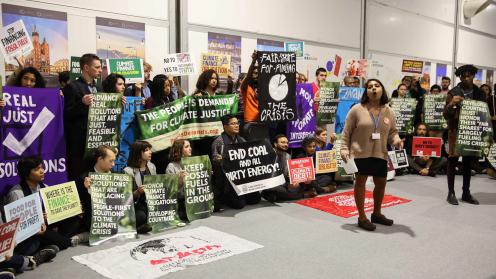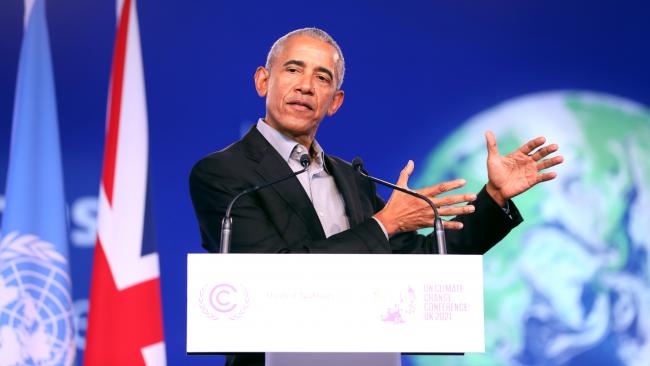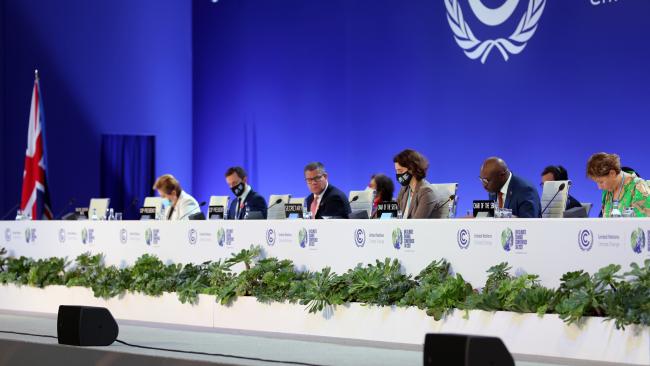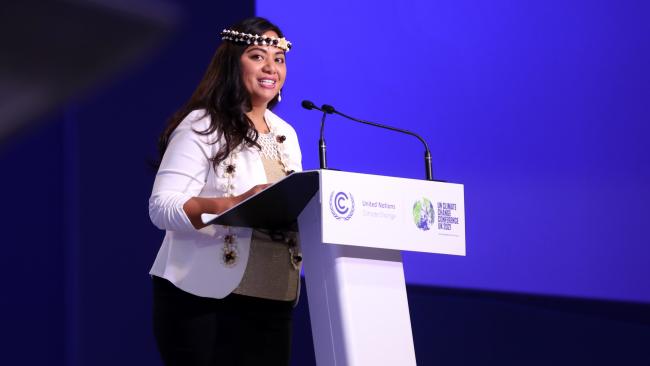The start of the second week of the Glasgow Climate Change Conference marked a shift to a more political phase of the conference. Ministers arrived, former US President Barack Obama drew a crowd, and negotiations continued.
Highlights included:
- The COP Presidency set out their negotiation plan for week two;
- Talks on finance, adaptation, technology, and other issues;
- The High-level Ministerial Dialogue on Climate Finance under the Paris Agreement;
- Events on adaptation and loss and damage, which showcased experiences of living on the frontlines of climate change; and
- Countries pledging USD 232 million to the Adaptation Fund.
To dig deeper on individual negotiation items, read the full ENB daily report.
Negotiations
COP 26 President Alok Sharma laid out the process for the next, more political, phase of the negotiations. It will include ministers leading discussions on key political issues, in parallel to continued technical work. The Presidency will continue to hold meetings with heads of delegation to work out the “overarching cover decisions.” Such decisions are sometimes used to communicate an overall message from the conference, or to pull together major mandated work, such as the adoption of the Paris Agreement.
Finance discussions largely focused on the new collective quantified finance goal. Divisions still remain between developed and developing countries on how to go about setting the new goal before 2025.
Negotiations on technology and the Paris Agreement Implementation and Compliance Committee were relatively smooth. Perhaps this indicates that the Presidency hoped to get through less controversial issues earlier this week, while providing time for negotiators to meet informally to work through some of the thorny issues left over from the first week.
There are indeed many issues still on the table to resolve, including Article 6 (cooperative approaches), adaptation issues, transparency issues, loss and damage, response measures, finance, and more. Few veterans of the process share President Sharma’s optimism that the meeting will end on time, Friday at 6:00 pm.
Around the Venue
Adaptation involves reducing vulnerabilities and improving resilience to the impacts of climate change. When adaptation fails or proves impossible, climate change can have irreversible effects, which in the language of the climate negotiations is termed “loss and damage.” Loss and damage can include lost harvests and homes, livelihoods and lives. The word “frontlines” peppered events throughout the day.
Sheila Jack Babauta, Northern Marianas Islands, related how the intensity of climate-amplified storms strikes fear in the people of her home island when they hear gusts of wind and heavy rain. But, she stressed that Indigenous Peoples are not passive victims; they have solutions and knowledge that can address the climate crisis.
The hallways were full of people eagerly awaiting a glimpse of former US President Barack Obama. In his address, he said the goal in Paris was to create an agreement that would give the planet a fighting chance. Calling cynicism “the recourse of cowards,” he said “we can’t afford hopelessness.” Instead, he called for mustering the will, passion, and activism of citizens, especially youth, to push governments and companies to meet the climate challenge.
Other events from the day included:
- Presidency events on adaptation action and exploring loss and damage;
- Adaptation Fund Contributor Dialogue and Reflections from Recipients and Stakeholders;
- Global Climate Action events exploring what resilience means in practice; and
- UNFCCC Capacity Building Hub events.
To receive free coverage of global environmental events delivered to your inbox, subscribe to the ENB Update newsletter.
ENB images are free for use with attribution. For the Glasgow Climate Change Conference, please use Photo by IISD/ENB Mike Muzurakis.








































